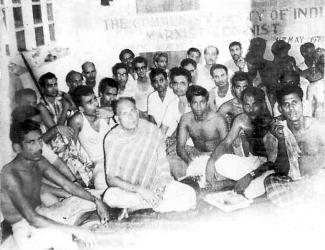As the CPI(ML) returns to Patna for the 11th Congress of the party, it is time to take a quick look at the trajectory of the party’s onward march through the previous ten Congresses. This is the second time a CPI(ML) Congress is being held in Patna (the previous one was the Seventh Congress held in December 2002). Of the ten previous Congresses undivided Bihar hosted four Congresses (the 2nd Congress in Gaya, the 3rd in Giridih, the 4th in Hazaribagh and the 7th in Patna). The other Congresses have been held in West Bengal (the 1st, 5th and 8th Congresses in Kolkata), Uttar Pradesh (the 6th Congress in Varanasi), Jharkhand (the 9th Congress in Ranchi) and Punjab (the 10th Congress in Mansa).
The First Congress, 1967
The First Congress was held three years after the “Spring Thunder” in Naxalbari (May 1967) and one year after the formation of the CPI (ML) on 22 April 1969. It was held clandestinely in Kolkata in the guise of a marriage ceremony so as to protect the Congress and participants and organisers from the surveillance and attacks of the state machinery. A Communique issued by the Central Committee on May 24, 1970, declared:
“The Eighth Congress of the Communist Party of India (Marxist-Leninist) — the First Congress after Naxalbari, after the Party was rebuilt on Mao Tsetung Thought — was held about the middle of May 1970. The Party Congress was successfully held in underground conditions, conditions of utmost secrecy, and was attended by comrade delegates from various States of India, who had been elected by their respective State Conferences.
The Congress unanimously adopted the Party Programme, the Party Constitution and the Political-Organizational Report and elected the Central Committee.” Comrade Charu Majumdar’s (CM) speech introducing the Political-Organizational Report at the Party Congress was adopted by the Congress as a Party document, in fact as part of the Poltical-Organisational Report.
The Congress also sent a Message of Greetings to Chairman Mao and passed a resolution paying homage to the great martyrs who had fallen fighting for the cause of the Indian revolution.
The Central Committee comprised comrades Charu Majumdar (elected General Secretary), Sushital Roychoudhury, Shiv Kumar Mishra, Kanu Sanyal, Saroj Dutta, Souren Bose, Satyanarayan Singh, R P Sharaf, L Appu, Vempatapu Satyanarayana, Adibhatla Kailasham, Mahendra Singh, Rajkishore Singh, Gurbax Singh, Appalasuri, Nagabhushan Pattanaik, Kodandaraman, Ashim Chatterjee, Suniti Kumar Ghosh, Ambaji Menon and Jagjit Singh Sohal. The first-named nine comrades were elected to the Political Bureau.
The second Congress, 1976
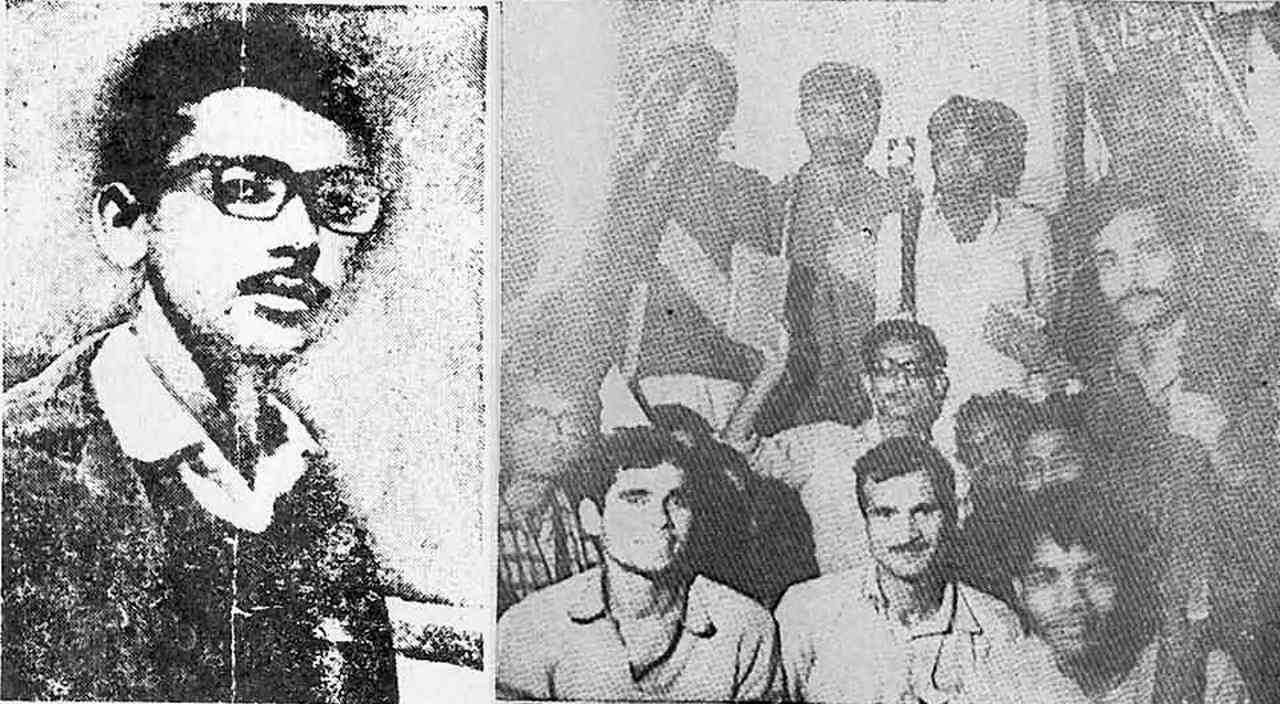
The Second Congress was held on 26-27 February, 1976, in the countryside of Gaya (Bihar) in the backdrop of martyrdom of Comrade Subrata Dutta (Jauhar), in Bhojpur on 25 November 1975. Comrade Jawhar had been the GS since the reorganization of the Central Committee on 28 July 1974 -- exactly two years after the custodial assassination of CM, which had led to virtual collapse of the Party Organisation. With the departure of Jauhar, Comrade Vinod Mishra (VM) had been elected GS. Given the repressive environment of the Emergency, this Congress was also held in conditions of utmost secrecy. The Second Congress elected the CC and ratified the appointment of Comrade Vinod Mishra as GS. It resolved to continue with revolutionary peasant struggle as the key link and work for an anti-Congress united front, as CM had directed in his last write-up.
Special all-India Party Conference, 1979
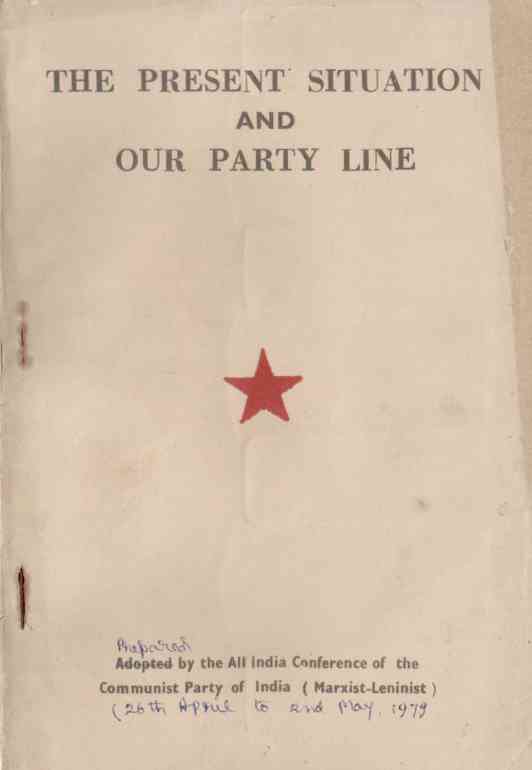
This conference, which in political terms was no less important than a regular Congress, was held in Bhojpur between April 26 and May 2, 1979. The main purpose was to discuss and finalize a draft document prepared by the CC summing up the inner-party “Rectification Campaign” launched at the beginning of 1978 to emancipate our minds from old dogmas, grasp the dialectical-materialist viewpoint, and prepare the entire Party for the new tasks of the post-Indira period. Following intensive discussions among delegates, the revised document “The Present Situation and Our Party Line” was adopted unanimously. The conference marked the beginning of major changes in our policies and tactics commensurate with the new situation of late 1970s and early 1980s. It gave a great fillip to mass initiatives on diverse fronts and mass organisations began to take shape on various levels. And with the formation of the Indian People’s Front in April 1982, this mass dimension graduated within three years from local activism and state level initiative to all-India coordination and intervention.
The Third Congress, 1982
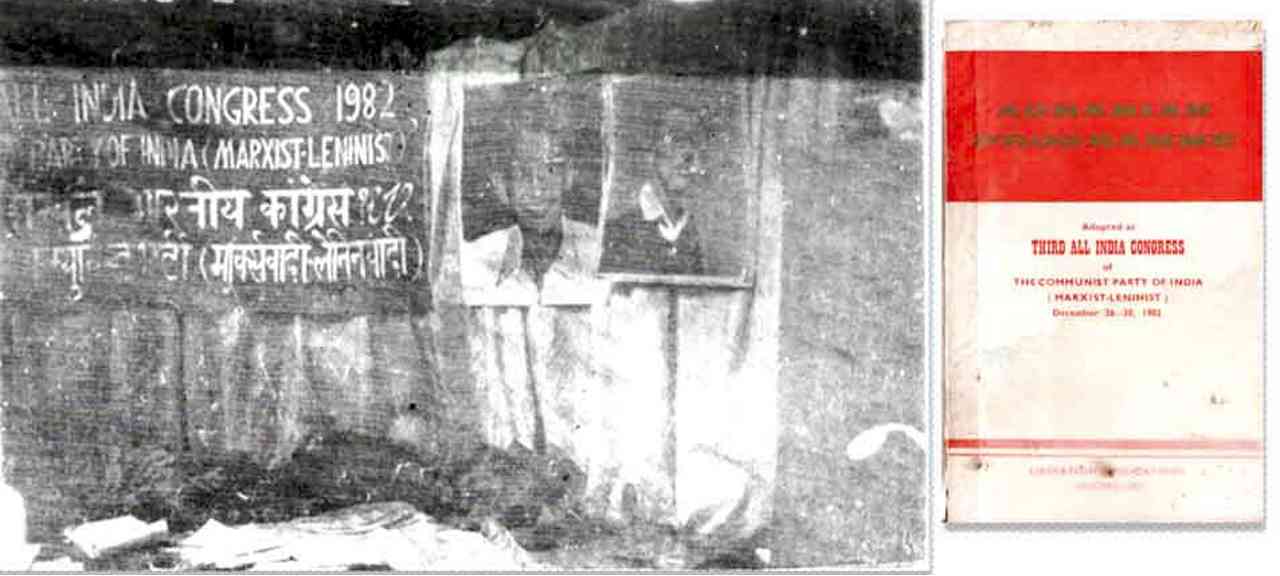
The Congress was held in underground conditions in Giridih district from 26 to 30 December, 1982. The Congress discussed, debated and finally adopted the Political-Organisational Report, the Party Programme, Agrarian Programme (a first in our Party, it contained a deep study of the agrarian situation including an updated rural class analysis, a review of our rich experience of peasant struggles and a reformulation of our policies and tasks) and Party Constitution unanimously.
The Congress made a critical evaluation of the past, upholding the bold revolutionary imagination and struggles during the formative phase of CPI(ML), saluting the saga of great determination and glorious sacrifices in the face of severe repression unleashed by the state and drawing lessons from the mistakes, excesses and generalizations committed during the first wave of revolutionary advance and assertion.
The Congress gave its green signal to the tactics of participation in elections, reserving the tactics of boycott as an option for very special conditions of revolutionary upsurge. At the same time, it reaffirmed the party’s resolve to grasp anti-feudal resistance struggle as the key link in all our multifarious initiatives, and to keep parliamentary struggles subordinated to the extra-parliamentary mass movements. A call to recruit tens of thousands of members and expand the Party Organisation was issued.
A new Central Committee with 17 members and 7 candidate members was elected by secret ballot. On December 31, the first plenary session of the Third Central Committee elected a Polit Bureau, re-elected Comrade Vinod Mishra as General Secretary and appointed comrades Swadesh Bhattacharya and P.V. Srinivas (Ganeshan) as secretaries to the Central Committee.
The Fourth Congress, 1988
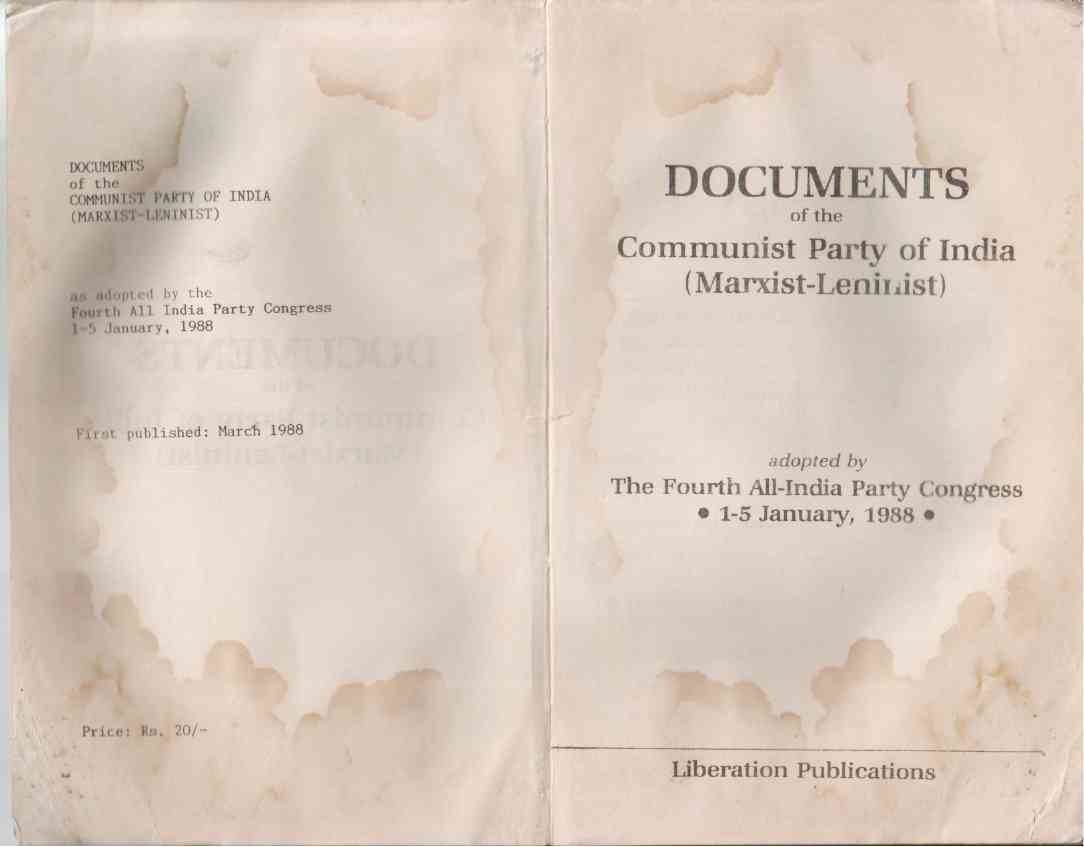
The Fourth Party Congress, held in a Hazaribagh village from January 1 to 5, 1988, and attended by delegates from 14 States and Union Territories, marked a turning point in the ideological-political consolidation and expansion of the Party. While rectifying old errors of judgement in the Party’s assessment of Soviet Union, the Congress also joined issue with Gorbachev’s illusory and euphoric discourse on ‘peaceful’ imperialism. The Party reiterated the basic principles of revolutionary communism -- defence of Marxism, absolute political independence of the Communist Party and primacy of revolutionary peasant struggles in democratic revolution -- in the face of a global offensive of bourgeois ideological trends.
The Congress also decided to advance to the broader arena of interaction with Left parties beyond the ML camp. In this context, the Political-Organisational Report observed that at present, in our relations with the CPI(M)-led alternative, struggle is the primary aspect and unity (in the Rajiv Hatao movement for example) the secondary aspect, but the situation may change:
“… in face of direct attacks by the Centre to overthrow Left Front governments and an upswing in the revolutionary struggles of the people and consequent strengthening of our forces, the situation may undergo a drastic change. Struggle may become the secondary aspect and unity primary, and conditions may mature for developing a broad left and democratic confederation on an entirely new basis.” This flexible and dynamic tactical approach opened up new vistas for developing a broad, principled Left unity based on mass movements.
The Congress elected a 21-member Central Committee, which in its First Plenary Session on 5-6 January re-elected Comrade Vinod Mishra the General Secretary. It also elected a 7-member Political Bureau, a Standing Committee of the CC and also a Central Control Commission (CCC). The CCC in its first meeting elected comrade Swadesh Bhattacharya its chairperson.
Special All-India Party Conference, 1990
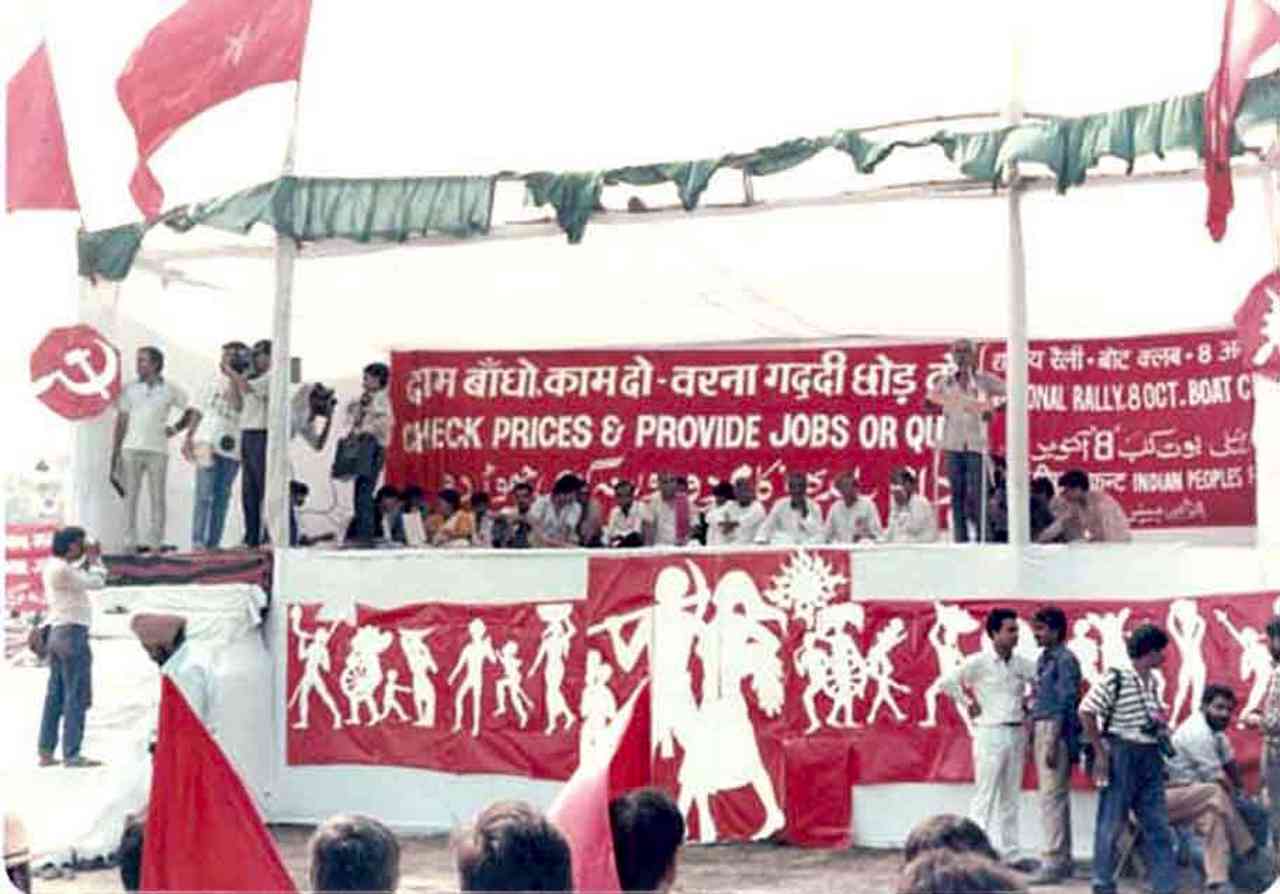
Midway between the Fourth and Fifth congresses, a Special All-India Party Conference was held between 22 and 24 July, 1990 at New Delhi in a semi-legal manner. It discussed and adopted three documents on burning issues that demanded our urgent attention: (a) The Present Crisis of Socialism (b) The Changed National Situation and (c) Challenges Facing Our Party and Party Restructuring in the Present Phase.
This was once again a transitional phase in the communist movement and in our own Party history. The Party made a very inspiring and eventful entry in the electoral arena, launching a militant mass campaign to stop booth capturing and exercising the right to vote that the landless rural poor in Bihar had long been denied. This led to a lot of feudal violence including a bloody polling day massacre in Bhojpur district after the polling was over, but it could not stop the landless poor from casting their vote and sending their first representative to Parliament under the banner of IPF. A few months later, the IPF asserted again securing seven seats in Bihar Assembly elections and finishing second in more than a dozen contests. Later in October 1990 the IPF organised a historic mass rally in Delhi around the demand for jobs and check on price-rise.
The Fifth Congress, 1992
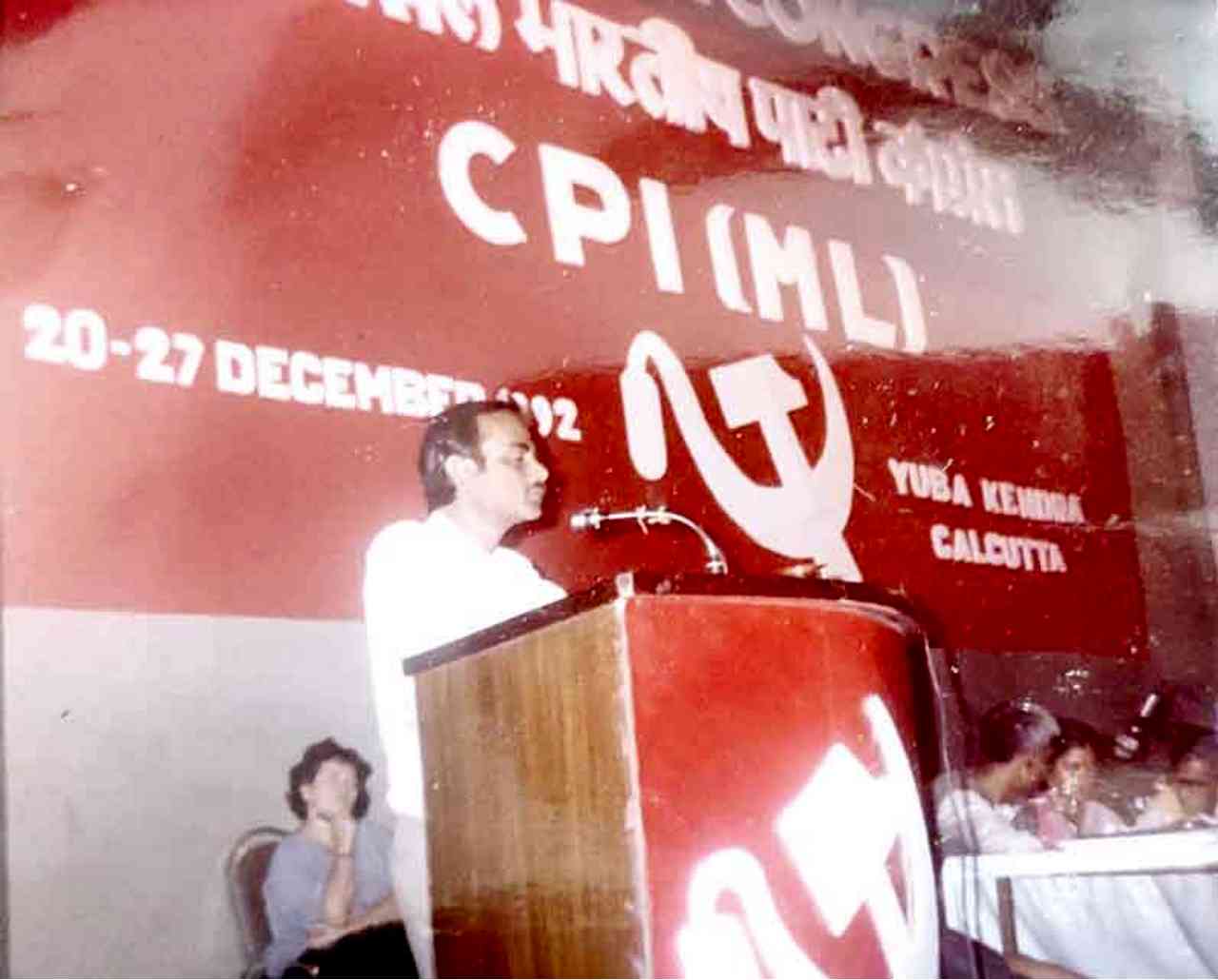
Even as the party was opening up in measured steps, a new urgency to speed up the process was felt with the demolition of Babri Masjid and the onset of anti-Muslim riots. So the CC took a snap decision to hold it openly in Kolkata so as to confront the saffron flag of communalism with the red flag of communism and build up a broad left unity to this end. As comrade VM said in his maiden public speech following delegate sessions (20 and 26 December 1992) at a massive rally in Kolkata’s iconic Brigade Parade Ground on 28 December,
“The Left must march forward and come up with its own vision, the vision of a Left alternative which alone can pull the country out of the current mess. By unity we do not mean understanding among leaders or some formula for distribution of seats and ministries. We have nothing to do with such narrow, superficial unity. We are for unity on the basis of mass movements….”
Among other documents, the Congress adopted an ideological resolution which reiterated the Party’s commitment to the socialist project and communist vision while declaring its readiness to draw lessons from the collapse and disintegration of the USSR and weaknesses and distortions of the Soviet experience. The Congress elected a 17-member CC, which reelected comrade VM as GS and formed a seven-member Polit Bureau. The CC also elected a 3-member Central Control Commission, which elected Comrade Shankar Mitra as chairperson.
All-India Organisational Conference, 1995
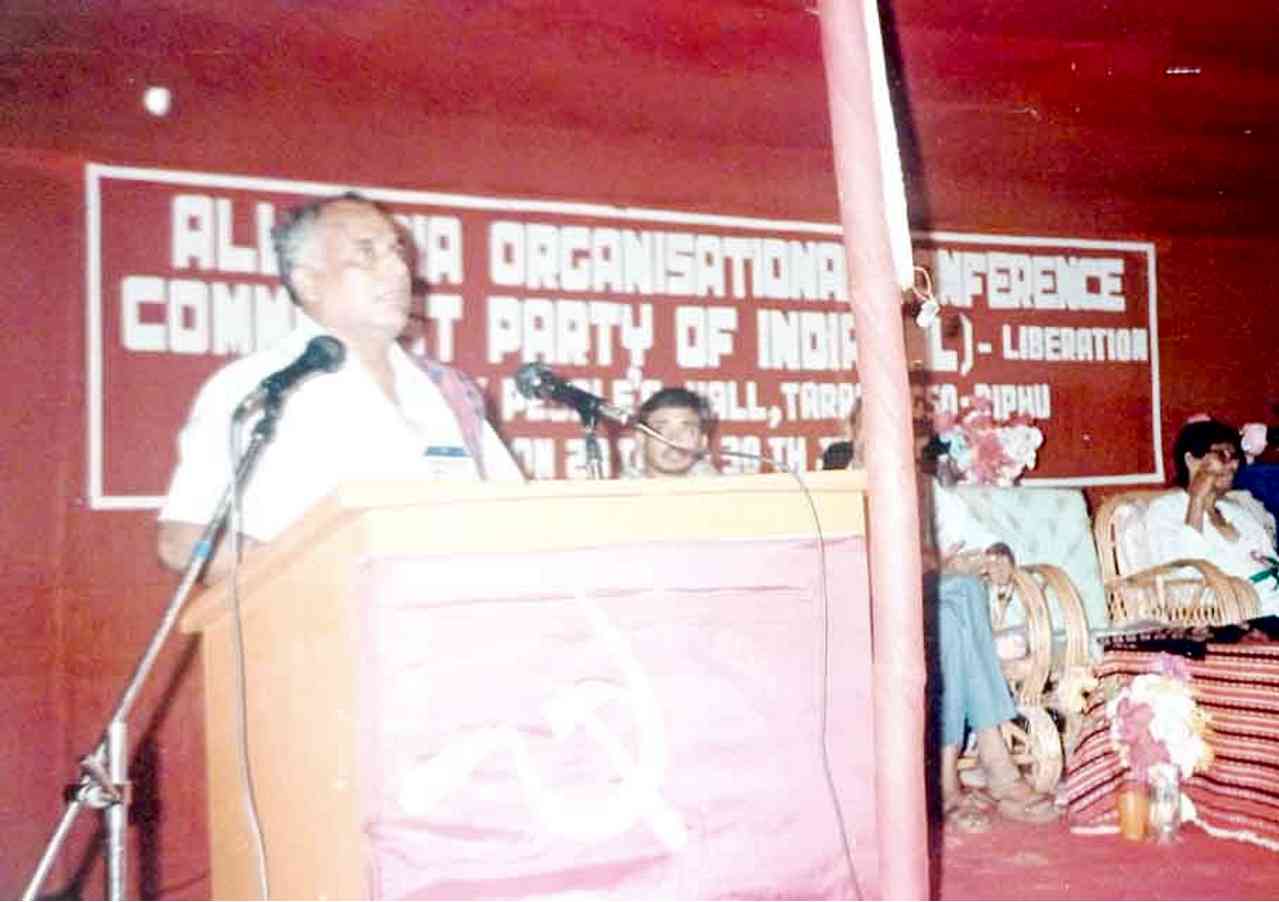
In July 1995, the Party held an organisational conference at Diphu in Karbi Anglong district of Assam. Among other things, the conference discussed problems and tasks like improving democratic centralism at all levels, removing various imbalances (e.g., the low percentage of women comrades in party membership and structures), strengthening the party structure at the grass-roots, with special emphasis on organising party branches and ensuring their regular functioning, vigorously expanding and consolidating the party, instituting a regular system of party education, and so on.
The Sixth Congress, 1997
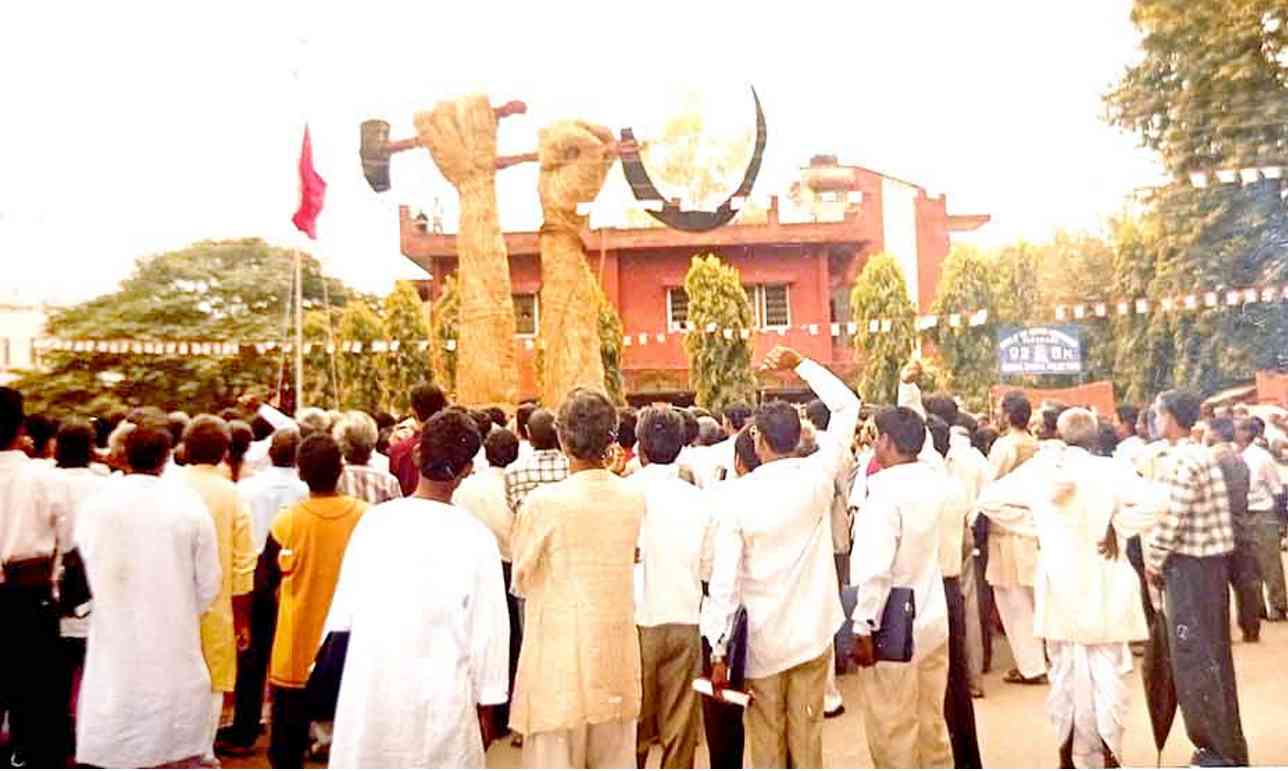
The Sixth Congress, held in Varanasi from 20 to 25 October 1997, marked the emergence of CPI(ML) as a formidable party of independent Left assertion in contrast to the opportunist official Left. The central task the Party set itself was very concisely articulated by comrade VM in his inaugural address:
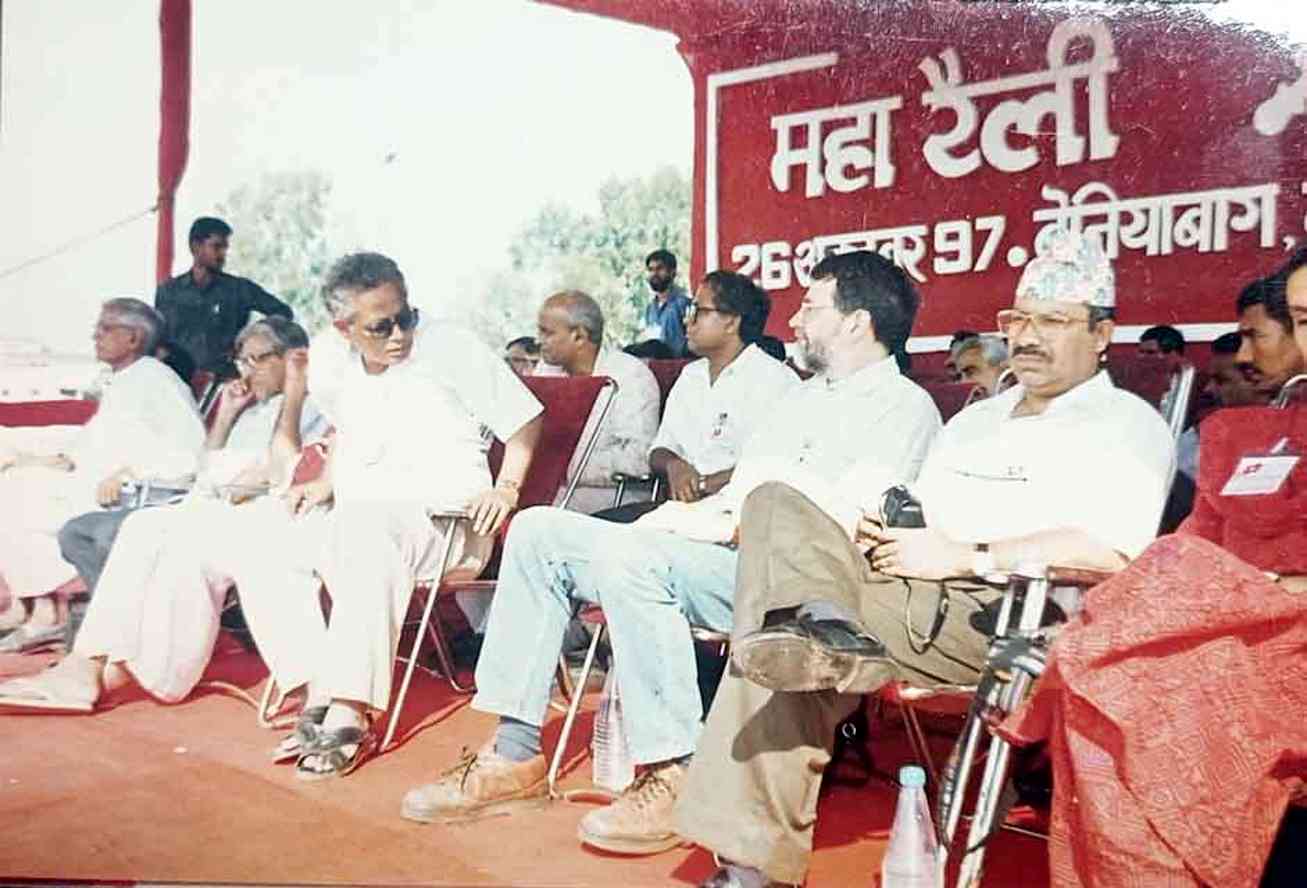
“BJP’s ascendance to power twice in UP has clearly demonstrated that if somehow this party manages to wrest the central power, it will pose the biggest threat to whatever is left of India’s secular polity, to democratic institutions, to progressive movements, to intellectual, aesthetic and academic freedom, to struggles of the rural poor, to social equality of Dalits and women as well as religious and national minorities and to friendly relations with neighbouring countries. We have before us the all-important agenda of forging a militant solidarity of all democratic secular forces to thwart the communal fascist takeover of India.”
In addition to the usual draft documents, three policy resolutions -- on tactics, on nationality question and on agrarian policy -- were discussed and adopted in this Congress which was attended by nearly 700 comrades from 17 states.
The Seventh Congress, 2002
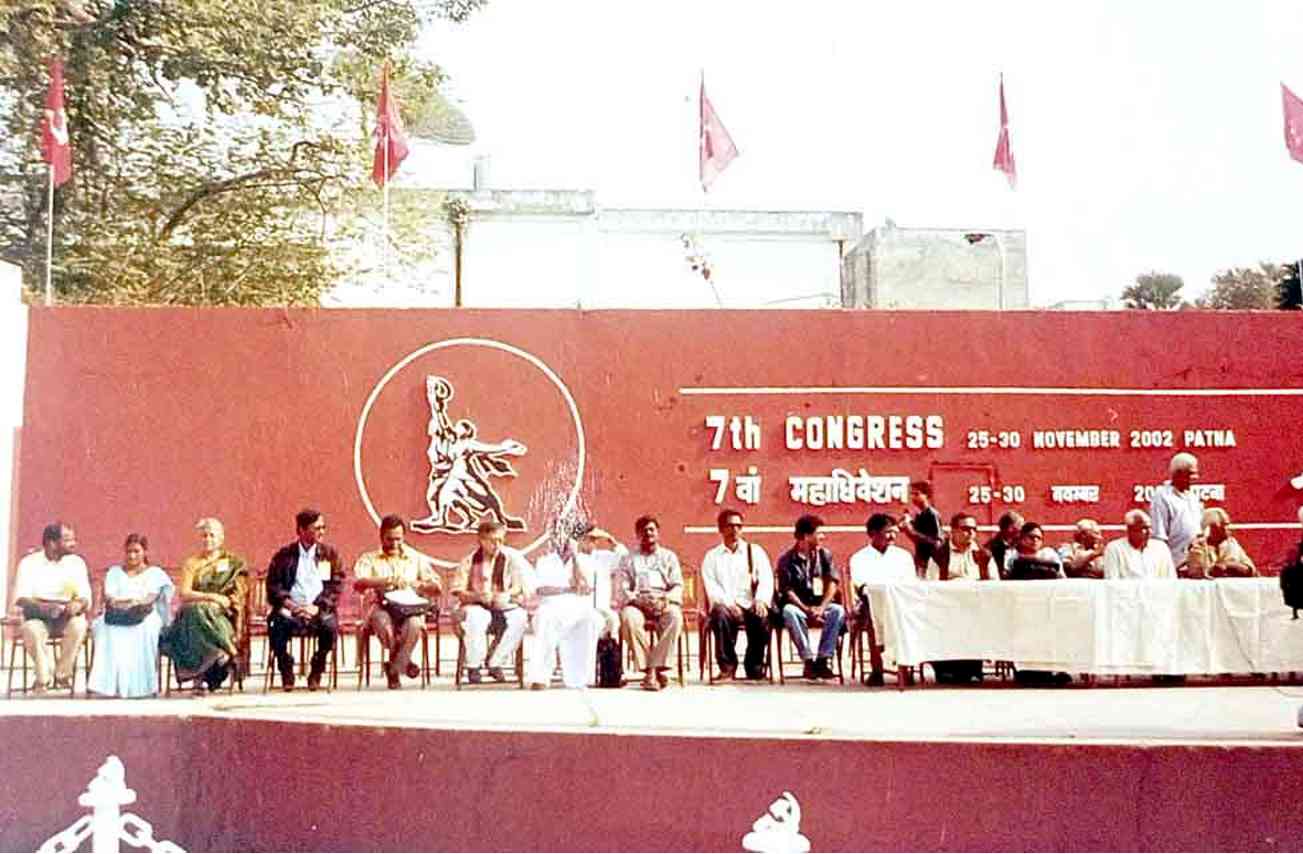
Over 700 delegates from all parts of the country participated in this Congress held in Patna between 25 and 30, November 2002. Following an animated discussion and adoption of the Political and Organizational Report as well as amended versions of the General Programme and the Party Constitution, a 41-Member Central Committee and a 5-Member Central Control Commission were elected. The new central committee elected a nine-member Politbureau and re-elected Comrade Dipankar Bhattacharya, who had been unanimously elected General Secretary following the sad and sudden demise of comrade Vinod Mishra in December 1998, as the GS.
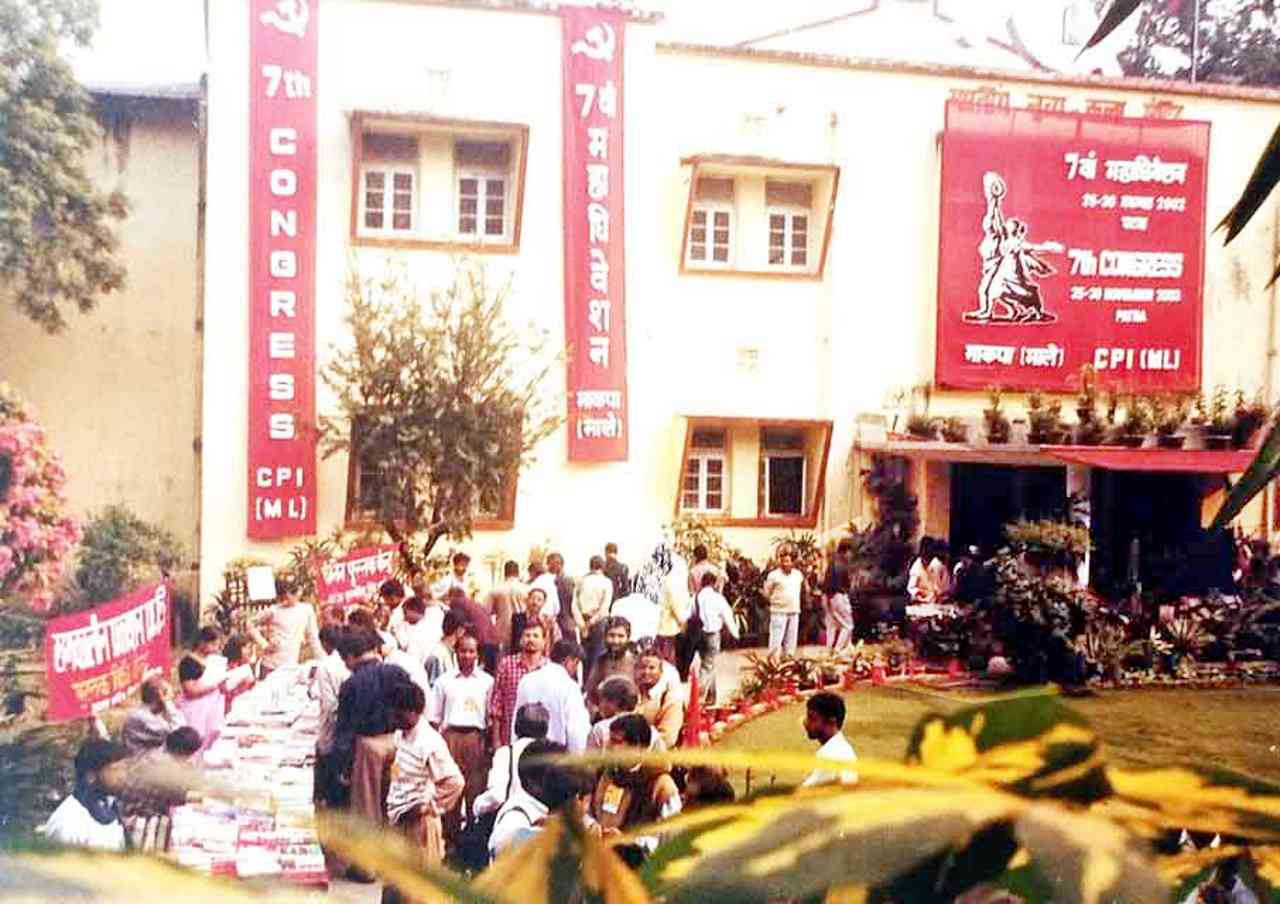
On November 30, tens of thousands of people assembled at Patna’s historic Gandhi Maidan to attend the concluding ceremony of the Party Congress. Party leaders apart, this session was also addressed by fraternal delegates from neighbouring countries including Comrade Madhav Nepal (from Nepal), and leaders from Pakistan, Bangladesh, Sri Lanka, Myanmar, Australia and Norway. The presence of guests from all over South Asia conveyed a refreshing message of growing cross-border solidarity among progressive forces in sharp contrast to the ruling classes’ politics of jingoism and communal divide.
The Eighth Congress, 2007
The Eighth Congress was held in Kolkata between 10 and 18 December, 2007. Attended by more than 1200 delegates and observers as well as guests from fraternal organisations in India and abroad, the Eighth Congress was clearly the biggest Congress so far in the history of the Party.
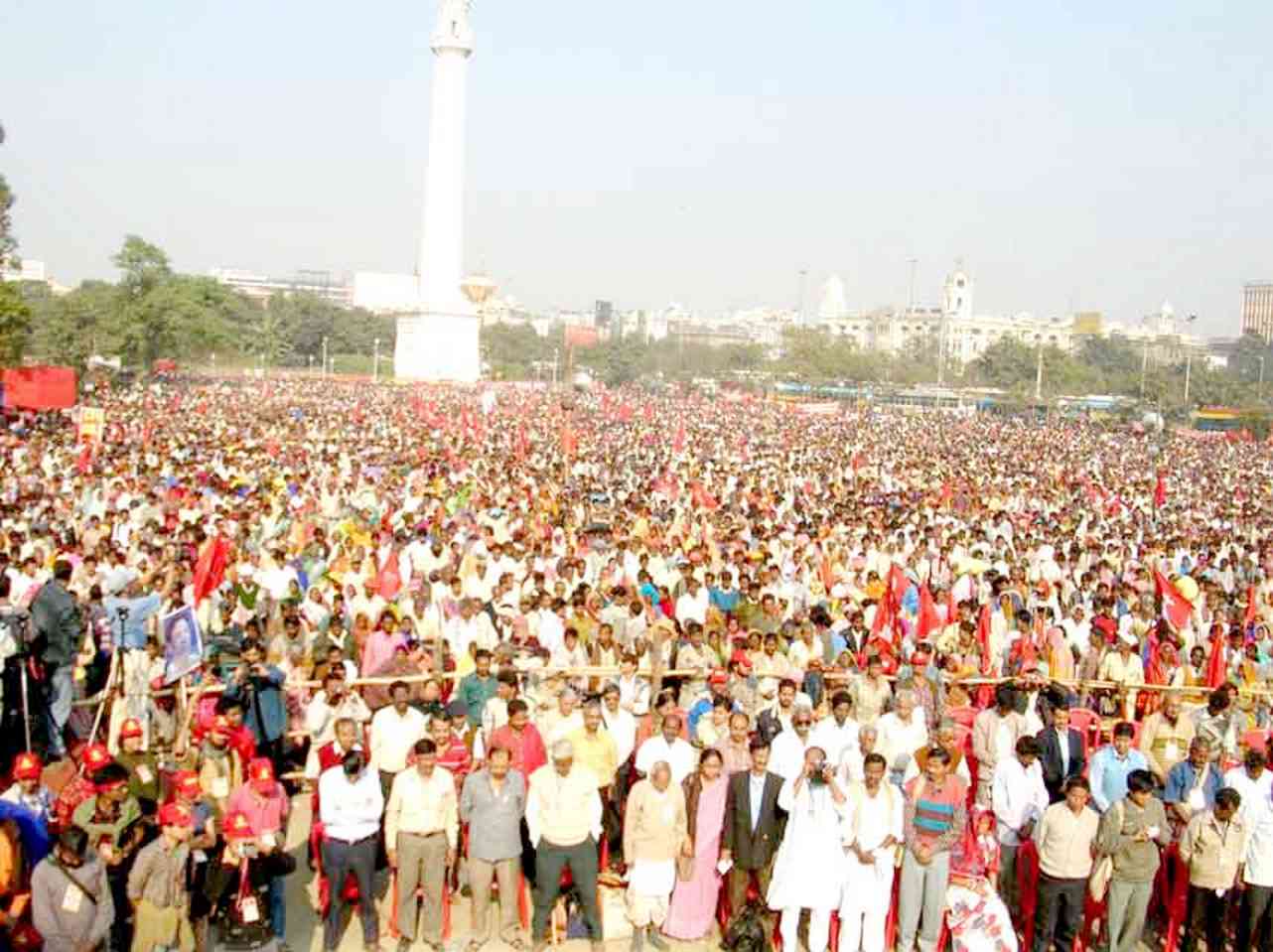
On the morning of 10 December, Party leaders as well as leaders and activists from Bangladesh, Burma, Nepal, Britain and Australia garlanded the statues of Mangal Pandey at Barrackpore and Bhagat Singh in Kolkata. Delegates and guests then assembled in a mass convention that denounced imperialism as a “War on Freedom, Democracy and Development” and resolved to resist imperialism in every sphere of life.
In addition to the Political-Organisational Report, the Congress adopted several other documents: (a) Basic Documents (updated General Programme and Party Constitution); (b) Resolution on International Situation (c) Resolution on National Situation and Our Tasks; (d) updated Agrarian Programme; (e) Resolution on Agrarian Crisis and the Way Out.
Delegates to the Congress unanimously elected a five-member Central Control Commission with comrades Rajaram as chairperson and a 47-member Central Committee, which in turn elected an 11-member Politbureau and comrade Dipankar Bhattacharya as the General Secretary.
The Ninth Congress, 2013
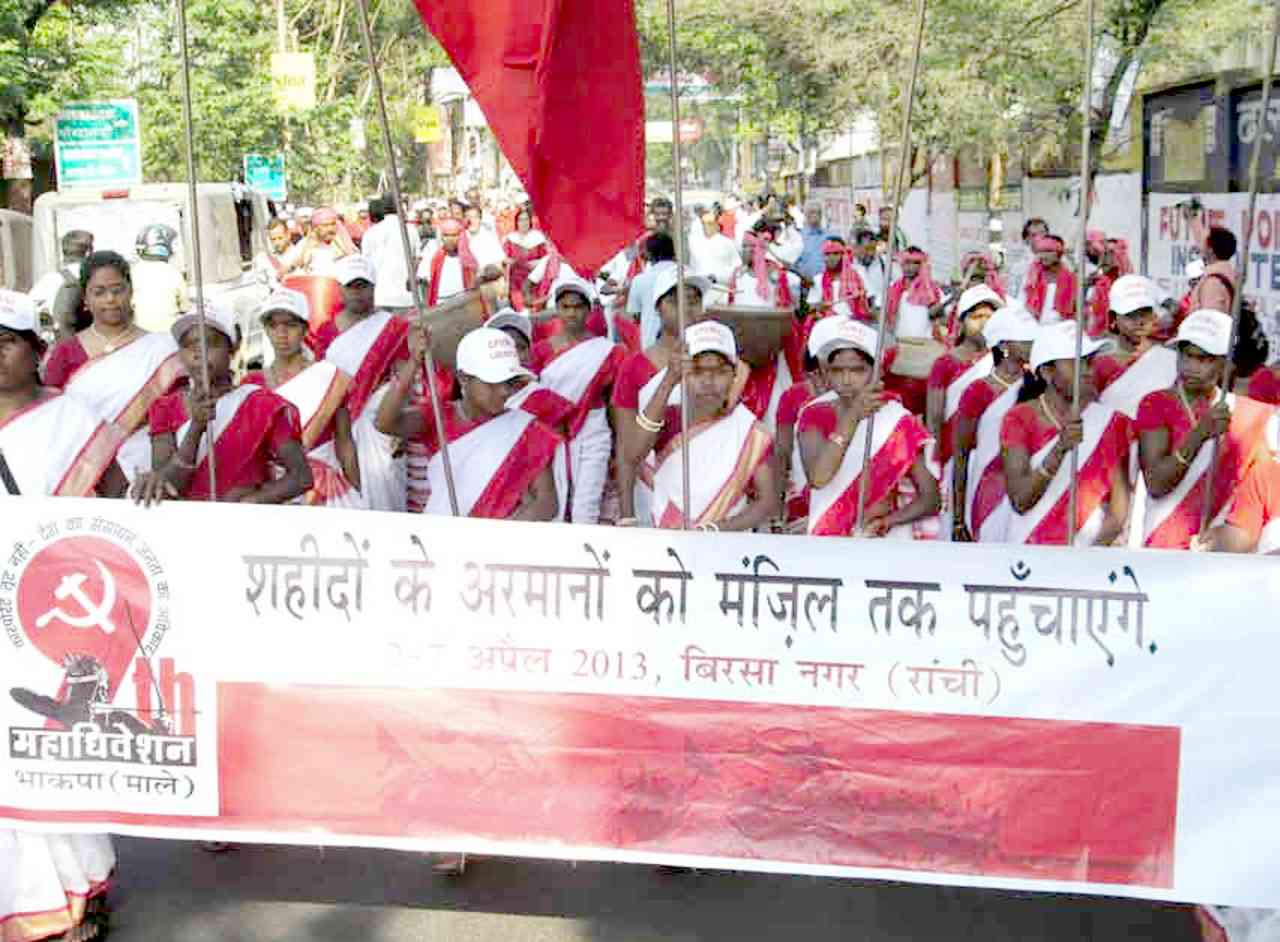
This Congress held in Ranchi from 2 to 6 April, 2013, was attended by 1024 delegates and 163 observers. Comrades discussed and adopted a wide range of policy resolutions, namely, (a) working class movement, (b) agrarian and other rural struggles, (c) women’s movement, (d) student-youth movement, (e) intervention in panchayats. (f) work in urban areas, (g) environmental protection and people-centric development and (h) people’s progressive culture and alternative media.
The Congress elected a 59-member Central Committee, which in turn elected a 17-member Polit Bureau and re-elected Dipankar Bhattacharya as General Secretary. A 7-member Central Control Commission was also elected with Ramjatan Sharma as its Chairperson.
The Congress concluded on April 7, 2013 with an impressive ‘People’s Alternative Rally’ at the Vidhan Sabha Maidan at Ranchi. The rally called for a people’s political alternative to the NDA-UPA models of pro-corporate and anti-democratic governance.
The Tenth Congress, 2018
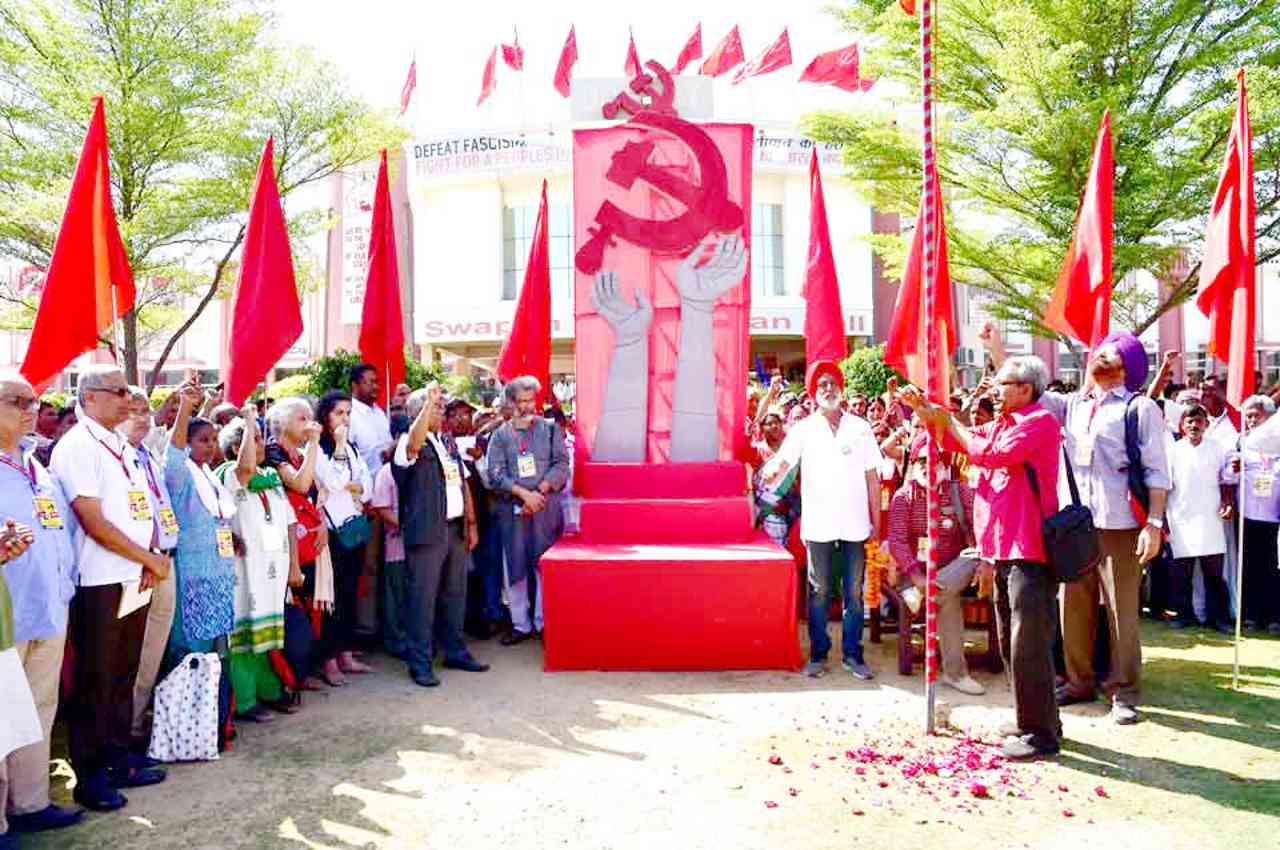
Held at Mansa, Punjab, between 23 and 28 March 2018, the 10th Congress deliberated upon and passed resolutions on (a) The International Situation (b) The National Political Situation; (c) The Party Organisation (d) Culture and Media and (e) Climate Change. The main focus of the resolution on national political situation was on the challenges of resisting the rise of fascism in India. It included a section on the key features of Indian fascism, and reflected on the various aspects of anti-fascist resistance. As Comrade DB said in his inaugural address to the delegate session,
“We now know for sure that the BJP is not just looking at another term in power by winning the next parliamentary elections, it is bent upon reshaping India in accordance with the Hindu supremacist blueprint of the RSS even as the latter marches towards its centenary in 2025. Behind the daily dose of hate and lies and state repression and privatised violence lie the undeniable trappings of Indian fascism that seeks to invoke and champion the most horrific features and regressive trends from our past, enforce the most bigoted ideas and prejudices on our minds and empower and unleash the most reactionary casteist, communal and patriarchal forces in our society. The enemies of liberty, equality and fraternity want to overturn the constitution of India and reshape the country to fit their Hindi-Hindu-Hindustan framework. The collaborators of British colonialism who betrayed India’s struggle for freedom now want to hijack and rewrite history by inflicting Savarkar over Bhagat Singh, Golwalkar over Ambedkar and Godse over Gandhi. This design must be defeated. This disaster must be prevented. And it is to this most pressing challenge and urgent task of the hour that we are dedicating this Tenth Congress of the CPI(ML).”
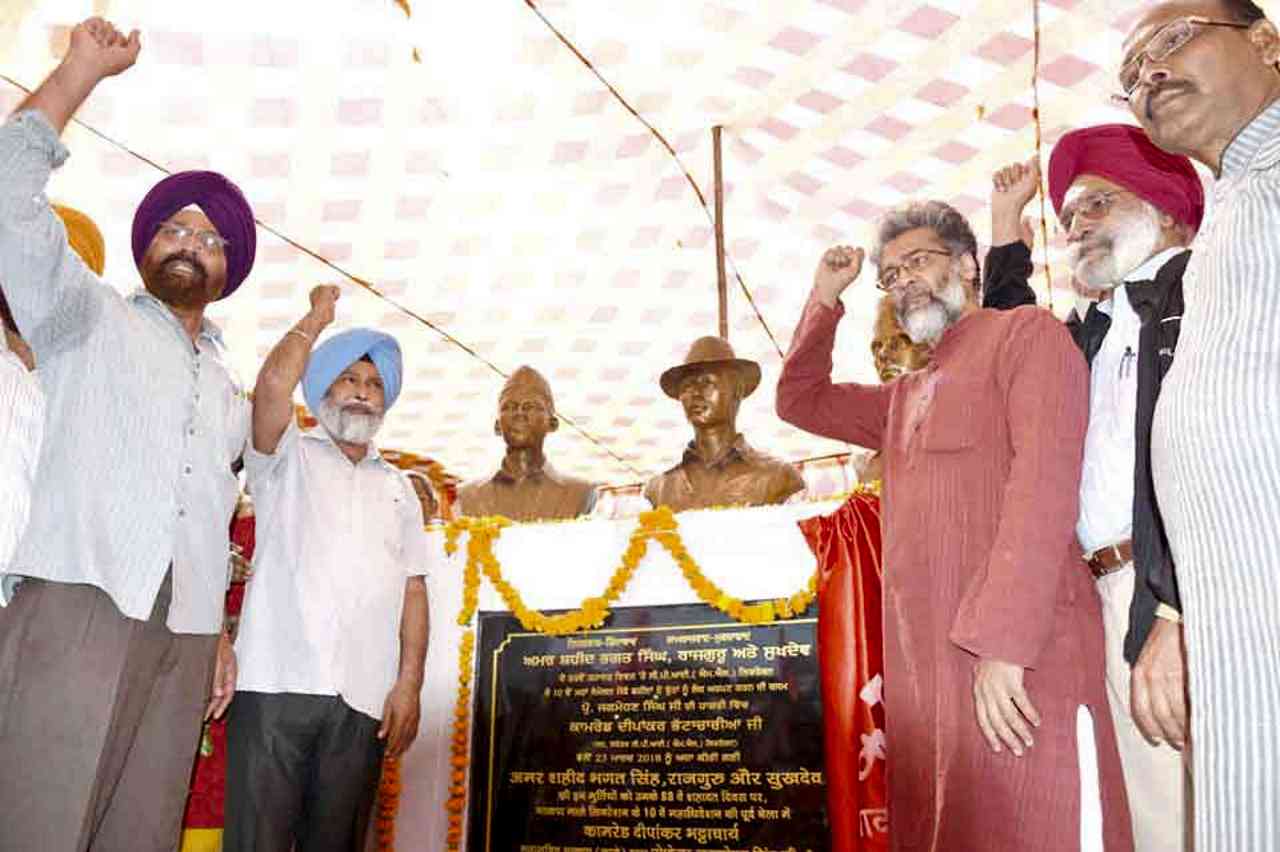
The Congress concluded on 28 March 2018 with the election of a 77-member Central Committee, which in turn elected a 17-membrt PB and re-elected Comrade Dipankar Bhattacharya as General Secretary. Also elected was a 7-member Central Control Commission with Comrade Brij Behari Pandey as its Chairperson. The CCC included a Gender Sensitisation and Justice Cell with comrade Lakshmi Krishnan as its Chairperson.
As a mark of respect to the fighters and martyrs of the historic Naxalbari peasant upsurge in its fiftieth anniversary year, the Congress felicitated Naxalbari veterans like Comrades Khemu Singh, Nemu Singh, Bibhas Biswakarmakar (son of Babulal Biswakarmakar, legendary leader and martyr of Naxalbari), Kandra Murmu and Cyril Ekka (son of Budhua Oraon, respectfully addressed as Pitaji). Comrade Khemu Singh addressed the house on behalf of the Naxalbari veterans.
